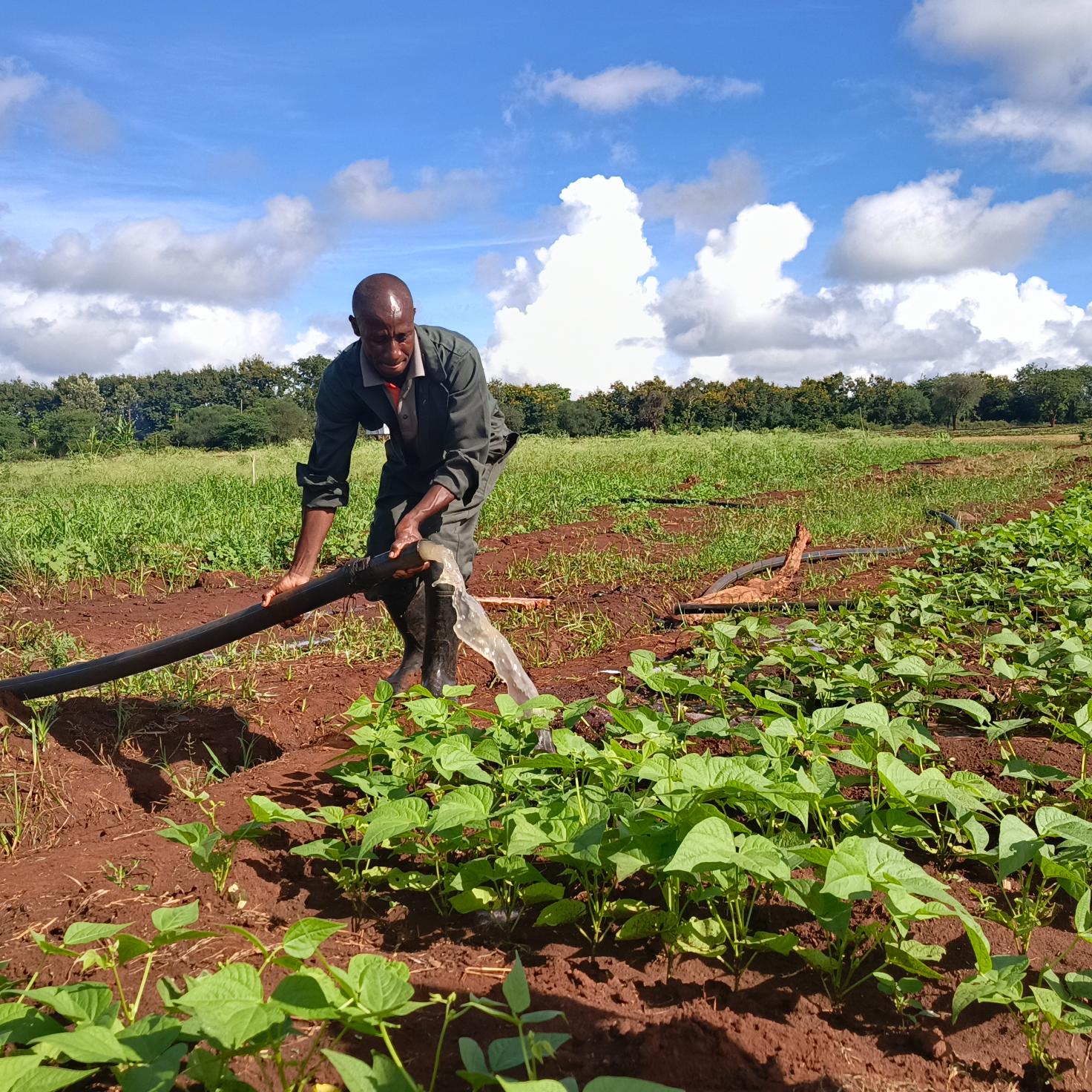

Farmers in Embu County are moving away from traditional diesel-powered irrigation to mobile, solar-powered systems to boost production and cut costs.
Stephen Mutua, a farmer from Gachuriri village in Mbeere South, has for years been relying on diesel for irrigation. Recently, he started hiring a mobile solar-powered irrigation pump, an alternative that’s proving more sustainable and affordable.
“I’ve been using diesel for irrigation, but now I have switched to a solar-powered system,” he says.
“I have realised solar is a more sustainable energy source. Unlike diesel, which depends on regular purchases, solar has long-term benefits.”
Although he hasn’t purchased a solar system yet, Mutua currently hires a solar-powered irrigation pump on a need basis, paying about Sh1,500 per acre.
Still, he says solar energy is without challenges.
“With diesel, I get strong water flow, the pressure just isn’t the same. If the solar pump could match that, I’d be able to rely on it completely,” he says.
Previously, Mutua depended entirely on diesel, which was a costly approach.
“In one week, I could use about 60 litres of diesel at Sh170 per litre,” he explains.
“I also had to pay a mechanic Sh2,000 weekly for servicing. Engine oil alone costs Sh1,800 per litre, and I need three litres every week. Repairs, too, were expensive.”
Sometimes he would pay more than Sh5,000 just to irrigate an acre using diesel.
He says over a season, diesel costs almost as much as buying a new engine, but today, solar has significantly reduced his operating costs.
“There are no fuel expenses. I only pay someone between Sh500 and Sh600 to help irrigate. I can irrigate all day, especially during the hot season. With enough water pressure, I can even work at night.”
However, for many small-scale farmers like Mutua, switching fully to solar irrigation remains financially out of reach. A complete solar irrigation system costs around Sh500,000, an amount most farmers can't afford.
“If we could get support to purchase the systems in instalments or through subsidies, it would change everything,” he says.
To make solar irrigation more accessible, Sow Precise, a social enterprise in Mbeere South, is offering solar irrigation services on lease basis.
“Our product is called Sunrider. We assemble and lease out solar panels, pumps and pipes to farmers, who then pay a small irrigation fee per session,” says Linda Kamau, CEO and co-founder of Sow Precise.
Kamau was inspired to start the venture after her own experience using diesel-powered irrigation.
“Diesel was too expensive and hard to maintain. The prices kept going up and breakdowns meant relying on mechanics who weren’t always available,” she says.
“Meanwhile, this area receives an average of six hours of sunlight daily. It just made sense to switch to solar.”
Because buying the equipment outright is costly, Sow Precise developed a shared-use model.
“Most farmers here are small-scale. By sharing one solar system among several farmers, we reduce costs and see a faster return on investment,” Kamau explains.
Their innovation caught national attention when Sow Precise became a runner-up in the 2024 AYuTe Africa Challenge hosted by Heifer International-Kenya.
“We received support to improve efficiency and scale operations. Right now, we can irrigate one acre a day,” Kamau says.
The solar system significantly cuts costs for farmers. For instance, irrigating an acre costs Sh1,500 per session.
“If a farmer is growing sunflowers, they’ll irrigate about 10 times per season. That’s Sh15,000 total,” Kamau says.
“Using diesel would cost between Sh3,000 and Sh4,000 per session, so solar is up to 40 per cent cheaper.”
To further cut costs and improve efficiency, Sow Precise uses electric mkokoteni (handcarts) for operations.
“This helps us move faster and keeps costs low, essential for making our business model sustainable,” Kamau adds.
Agnes Karatha, who leads the youth and innovation programme at Heifer International-Kenya, says the AYuTe Africa Challenge supports young innovators who use technology to improve agriculture.
“We offer training, mentorship and funding to help these entrepreneurs grow their solutions,” she says.
In Gachuriri village, Sow Precise is helping farmers tap into Thiba River using their mobile solar pumps, ensuring water access even during the dry season.
“Supporting models like this is critical for national food security. They help tackle key challenges such as water access for irrigation,” Karatha says.
Through the AYuTe Challenge, Sow Precise received a Sh750,000 catalytic grant to enhance pump performance.
“It’s not a loan. It’s meant to unlock the next stage of growth. Participants also benefit from business incubation, mentorship and coaching,” Karatha explains.
As solar technology becomes more accessible, and with continued support for innovators, more farmers in Embu and beyond may soon be able to ditch diesel to a more environment friendly technology-solar for good.








![[PHOTOS] Guardian Angel bus catches fire in Kikuyu](/_next/image?url=https%3A%2F%2Fcdn.radioafrica.digital%2Fimage%2F2025%2F04%2F58287f0a-f201-4a78-87f0-6f147ad8ba8a.jpg&w=3840&q=100)



